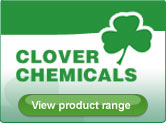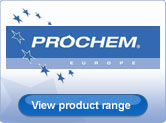New self-cleaning cotton can kill bacteria and break down pesticides
 Wednesday, November 2, 2011 at 10:37AM
Wednesday, November 2, 2011 at 10:37AM A new self-cleaning cotton fabric has been developed by scientists at the University of California Davis (UC Davis). It’s an extraordinary material as it has also been proved to kill bacteria and break down toxic chemicals.
The fabric has become a recent revelation that has sparked multiple ideas for its use including: clothing for the military, employees in the food processing sector, farm workers, those who work within the health care sector and as protective clothing used in the cleaning industry.
The work was conducted by Ning Lui and funded by the National Science Foundation, the U.S. Defence Threat Reduction Agency and the Jastro Shields Graduate Research Fellowship from the UC Davis College of Agricultural and Environmental Scientists.
According to a recent report Ling, a doctoral student in Professor Gang Sun’s group in the UC Davis Division of Textiles and Clothing developed the method to blend the compound 2 AQC with cotton fibres. Unlike any other self-cleaning agents we see on the market today, this chemical forms a strong bond to the cellulose in the cotton, which makes it extremely hard to wash off, whilst being ineffective to other properties of the fabric.
The Science Behind it
According to scientists, when 2 AQC is exposed to light a reactive oxygen species is produced, which kills bacteria and breaks down organic compounds such as pesticides and other toxins. These species include hydroxyl radicals and hydrogen peroxide. However, researchers have said there are cheaper equivalents to 2 AQC available.
With its bacteria killing property it could also be used as the material for cloths and cleaning accessories we use on a daily basis.
 news,
news,  self-cleaning cotton in
self-cleaning cotton in  fact,
fact,  trade info
trade info 







Reader Comments